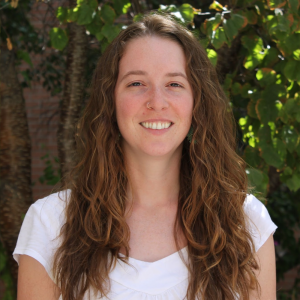
Open & Democratize Methods for Geospatial Data Analysis
Convening a community to prototype new, open source geospatial data analysis tools
The Latest
- GeoJupyter seeks to combine the approachability and playfulness of desktop GIS tools, the flexibility and reproducibility of coding-driven GIS methods, and the collaborative and storytelling power of Jupyter to enable more researchers, educators, and learners to confidently engage with geospatial data.
- DSE is interviewing likely users and hosting hackathons to introduce and improve on GeoJupyter tools. We also lead hands-on workshops and tutorials with scientists and programmers.
- Collaborators are using GeoJupyter tools in real-time. QuantStack generated the hero image above showing global carbon storage potential across different continents using JupyterGIS, as part of this Nature study on carbon storage.
Our Impact
Imagine a future in which a climate scientist, an ecologist, and a city planner can seamlessly collaborate through the cloud and explore land management strategies that combine diverse data. This data could include climate projections with species evolution models and land usage boundaries from Nairobi to New York City. DSE believes this future is possible and has co-launched GeoJupyter to meet this unique opportunity.
GeoJupyter leverages the Jupyter ecosystem, which encompasses open-source software maintained by a global community that empowers collaboration, accessibility, and innovation in data science and research. Its interactive tools such as Jupyter Notebooks enable users to explore, visualize, and share insights while promoting data reproducibility and transparency. Nearly 10 million Jupyter notebooks have been made public by GitHub users.
GeoJupyter includes JupyterGIS (our flagship software project), tutorials, and workshops. To date DSE has conducted over 40 hours of interviews to collect comprehensive feedback from likely users to help shape JupyterGIS. We recently launched a Team Compass, with resources and guides for those interested in contributing to GeoJupyter.

We are DSE’s Co-Director Fernando Pérez (who co-founded Project Jupyter) and our collaborators at the UC Berkeley Geospatial Innovation Facility for lending their relevant expertise in teaching and research on this effort.
Recent Workshops
We host recurring hackathons at UC Berkeley and virtually to attract new community members and address user needs. At a recent in-person hackathon, we invited developers and potential JupyterGIS users to test and improve JupyterGIS. Attendees had big-picture discussions on the purpose of JupyterGIS, explored containers and setting up development environments, tested the tool, and investigated Python integration and data manipulation workflows. Outcomes included setting up new development environments for the first time, improving documentation, and clarifying priority user needs.

Future Vision
Schmidt DSE is building more modular components to complement JupyterGIS, which we hope will have a positive impact on the tool overall. Simultaneously, we will continue convening working groups to help grow momentum and enthusiasm behind GeoJupyter.











